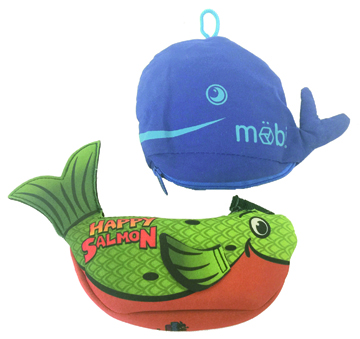
by Mark Smiley | Nov 21, 2016 | Travel
For Heady Holiday Shopping This Local Bookstore Is A Rare Find Bursting With Fresh Ideas
Sure, shopping can be a drag during the holidays. That’s why Glendale’s 40-year-old independently owned bookstore, The Bookies, is a rare work of non-fiction. “It’s a cultural benchmark, a byword even for cozy, exhilarating shopping during the holidays or any season,” customers say in explaining the store’s long-time popularity to the Chronicle.
“Unquestionably a breakthrough, a place where you run into friends and neighbors. Moreover, the kids love the place,” customers note in detailin g the store’s reputation. There are so many nooks and crannies to explore, each of them unique, with a character and feel all their own. “You just fall in love with the place,” they declare.
g the store’s reputation. There are so many nooks and crannies to explore, each of them unique, with a character and feel all their own. “You just fall in love with the place,” they declare.
As the holiday crowds peak this month and the stress of finding the right gift for loved ones surges, shoppers have a craving for a calm, relaxing place devoid of big pushy crowds. They would rather be run over by a reindeer than face crowded stores with befuddled customers who can’t find help and aren’t sure where to look.
Gifts, Staff Shine
Throughout the year but especially during this sea son shoppers want to be greeted and feel a sense of community. At The Bookies families actually seem to enjoy spending hours perusing the aisles. Kids can wander and play and the staff is receptive to the kids, adults and pretty much anyone who walks in the door. In addition, the shelves of the store more often than not hold the perfect gift for those on the customer’s holiday gift list no matter their interests or hobbies.
son shoppers want to be greeted and feel a sense of community. At The Bookies families actually seem to enjoy spending hours perusing the aisles. Kids can wander and play and the staff is receptive to the kids, adults and pretty much anyone who walks in the door. In addition, the shelves of the store more often than not hold the perfect gift for those on the customer’s holiday gift list no matter their interests or hobbies.
Seeking a tranquil, helpful approach to holiday shopping customers particularly appreciate The Bookies’ hands-on approach. It is a neighborhood gem with employees enthusiastic about the store’s inventory, as well as sharing their favorites and making recommendations based on needs, mood or taste. “Rare that you find a store where the staff is so into what they do and they are happy to be doing it. That’s w hat makes this place so fantastic,” explains one yelper. Plus there are floor to ceiling titles, educational toys and creative gifts for the kids, fun craft materials plus books and gifts for adults, too.
hat makes this place so fantastic,” explains one yelper. Plus there are floor to ceiling titles, educational toys and creative gifts for the kids, fun craft materials plus books and gifts for adults, too.
When it comes to recommending gifts, the staff seems to always shine and dazzle. They love to sell their favorites as well as reaching outside the box to pick the perfect something for everyone, thriving on the challenge. The store has hundreds of entertaining, educational and seasonal choices for all ages. Customers can compliment book purchases with a toy, bookmark, or game. Further they can add a personal touch by selecting from a wide variety of unique, creatively designed, funny and decorative items. Best of all, gift-wrapping is complimentary not just during the holidays but every day. So don’t get stressed out, let the pros deal with the cutting, folding and taping.
To get an idea of The Bookies’ selection
the Chronicle strolled through the store with the staff to find a few gift giving ideas for readers:
Kids & Family Games
Rubik’s Race: A fast paced game for two players to get their brain and fingers racing. A player shakes the scrambler and goes head to head with the opponent to shift and slide the tiles hoping to be the first to make t he 3×3 center match the pattern. It sounds easy, but it is a real game of skill, speed and dexterity. Youngsters can challenge their friends and family to a race.
he 3×3 center match the pattern. It sounds easy, but it is a real game of skill, speed and dexterity. Youngsters can challenge their friends and family to a race.
Slapzi: This game is all about speed. The first player to match all five of the right picture cards to the right clue cards is the winner. Everyone will be laughing as they think fast and react quickly to figure out the
clue. Slapzi is simple to learn and fast to play. Designed for ages eight 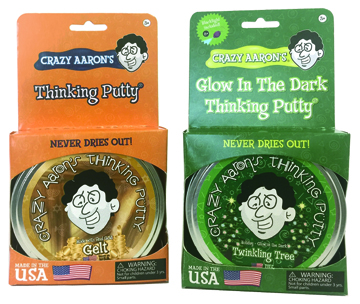 years to adult with two to 10 players, the game develops dexterity, quick thinking and interaction.
years to adult with two to 10 players, the game develops dexterity, quick thinking and interaction.
Möbi: A fun and fast-paced number tile game for one to six players. The goal is to make simple math equations as quickly as possible — a great way for kids or grown-ups to apply math skills. Plus, it comes in a cute blue whale. Players draw blue number tiles, and then use them to create simple equations (like 2+3 = 5) by including white math tiles (plus signs, minus signs, multiplication signs, etc.).
Happy Salmon: Great as an icebreaker or at parties it is a simple, fast-paced card game packed to the gills with high-fivin’, fin-flappin’ fun. Actions including the classic “High 5,” the unifying “Pound It,” the frantic “Switcheroo,” and the delightful “Happy Salmon” will leave players doubled over in laughter. For ages six and older, three to six can play.
Bugs In The Kitchen: A fun-to-play family game suitable for 2-4 players age six years and up. The object is to catch the pesky little bug in the kitchen. By turning knives, forks and spoons players can direct the bug into a trap. Players throw the die to discover which utensils they can turn. By catching the bug in the trap players earn a token — the first player to collect five tokens wins the game.
Toys & Puzzles
Twister Tracks Sports Car Series: Youngsters from three to adult will have hi gh-flying fun with this neon glow-in-the-dark twister car set with two vehicles. The flexible, detachable tracks allow kids to easily change the direction and shape of the raceway, their minds racing with all the possible combinations. They’ll flip for the 360-degree, anti-gravity stunt loop that takes the cars for a ride upside down. By turning out the lights players will see how the colorful tracks glow in the dark when illuminated by the vehicles.
gh-flying fun with this neon glow-in-the-dark twister car set with two vehicles. The flexible, detachable tracks allow kids to easily change the direction and shape of the raceway, their minds racing with all the possible combinations. They’ll flip for the 360-degree, anti-gravity stunt loop that takes the cars for a ride upside down. By turning out the lights players will see how the colorful tracks glow in the dark when illuminated by the vehicles.
Crazy Aaron’s Thinking Putty: This popular putty comes with new holiday colors and effects. Kit includes five tins of clear putty, three concentrated color putties, three special effect putties, and an instructional mat — everything kids need to make cool Thinking Putty colors that are all your own. Plus the putty will never dry out so they can play with this new toy forever.
I Love Colorado Puzzle: Here’s a holiday gift the entire family (age 12+) will get pleasure from trying to piece together. Anyone will enjoy pulling up a chair to work on this 1,000-piece puzzle with iconic Colorado scenes from the past.
Books For Kids
The Christmas Story: Master pop-up artist Robert Sabuda brings the age-old, awe-inspiring story of the birth of Jesus to life in this book. It is a visual feast featuring six gorgeously imagined scenes, culminating in a 3-D manger sheltering humans and beasts, guarded by an angel above. Glinting with touches of gold and pearlescent foil, it is a holiday treasure for the whole family to share.
What We Found In The Sofa & How It Saved The World: This humorous supernatural adventure is somewhat of a “tween” book. When kids discover a mysterious sofa sitting at their bus stop, their search for loose change produces a rare zucchini-colored crayon. This clever comic adventure from debut author Henry Clark is a truly original and utterly wacky story highlighting the importance of intelligence and curiosity in a complacent world.
Batneezer: Author Obert Skye doesn’t let his fans down in this hilarious sixth and final installment in the Creature From My Closet book series. While enduring visits by the ghosts of books past, present and future, Rob Burnside learns a battle is brewing and his school needs a hero.
Little Blue Truck’s Christmas: With the gentle rhythm and signature illustration style that made Little Blue Truck a household name, Blue’s newest adventure is full of holiday warmth. Sturdy cardstock pages, a compact and child-friendly text, and flashing colored Christmas lights on the final page come together in a novelty gift book that will be a favorite with kids.
Adult Books
A Gentleman in Moscow: With his debut novel, Rules of Civility, Amor Towles established himself as a master of absorbing, sophisticated fiction. In this latest book he immerses us in another elegantly drawn era with the story of Count Alexander Rostov. Brimming with humor, a glittering cast of characters, and one beautifully rendered scene after another, this singular novel casts a spell as it relates the count’s endeavor to gain a deeper understanding of what it means to be a man of purpose.
Cooking For Jeffrey: This is the most personal cookbook yet by bestselling author Ina Gartner. It is filled with the recipes she has made for her husband of 48-years. There are traditional dishes that she’s updated, such as Brisket with Onions and Leeks, and Tsimmes, a vegetable stew with carrots, butternut squash, sweet potatoes, and prunes. Some of her new favorites are Skillet-Roasted Lemon Chicken and Roasted  Salmon Tacos. For the first time, she has also included a chapter devoted to bread and cheese, with recipes and tips for creating the perfect cheese course.
Salmon Tacos. For the first time, she has also included a chapter devoted to bread and cheese, with recipes and tips for creating the perfect cheese course.
A History Of American Sports In 100 Objects: This entertaining book explores sports history through objects from a wide range of sporting experience from balls, articles of clothing, to various ephemera. In chapters of a single page to no more than a handful of pages it shows how the objects of sports and games take on historical significance based on their larger context. Written in a conversational, witty fashion it makes wry observations without losing touch with the larger historical, social, and political significance of the events and athletes that give the objects significance.
100 Things Broncos Fans Should Know & Do Before They Die: A revised and updated version by sportswriter Brian Howell. This book covers the franchise’s greatest moments, from its early days as an AFL charter team through the dominating Orange Crush all the way up to a new era led by Peyton Manning including the 2016 Super Bowl victory.
Located just two blocks east of Colorado Blvd. on Mississippi, The Bookies is just the place to pick up the gifts you need this holiday but it’s also a place where people go for the experience of simply coming here. Information: 303-759-1117.

by Mark Smiley | Nov 21, 2016 | Editorials
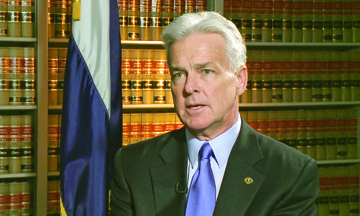 There is no individual elected official that has been a subject of more Chronicle editorials over the last 12 years than Denver District Attorney Mitch Morrissey. He is term limited and will be turning over the reins of office to soon to be septuagenarian Beth McCann this next month.
There is no individual elected official that has been a subject of more Chronicle editorials over the last 12 years than Denver District Attorney Mitch Morrissey. He is term limited and will be turning over the reins of office to soon to be septuagenarian Beth McCann this next month.
Mr. Morrissey is admittedly something of a mystery to us. He is intelligent, highly articulate and strikingly handsome which are attributes he shares with Arapahoe County District Attorney George Brauchler. When he came into office in January 2005 we had high hopes for him and his office.
His immediate predecessor as DA, Bill Ritter, went on to become governor of Colorado and there was no reason to think that Morrissey might not successfully follow that path to higher office.
There have been no scandals to speak of at the Denver DA’s office during his entire 12-year tenure for which Morrissey can be justifiably proud. Moreover, he has at times had the courage to do such things as his extremely sharp edged attack on presiding Denver County Court Judge John Marcucci and his brethren for turning Denver into the heroin capital of the West as highlighted on the front page of this month’s Chronicle.
But conversely from the beginning up until today there has been a constant barrage of legal and public relations gaffes that are extraordinary.
By way of example, we were aghast when he decided in 2008 to criminally prosecute Skinner Middle School Principal Nicole Veltze for failure to notify the police over incidental touching in a classroom, although she suspended the children involved. He assigned his two top assistants to bring three charges against the poor school administrator which brought howls from the local media.
County Court Judge Doris E. Burd threw out all charges against Veltze saying there was absolutely no evidence that the school principal acted willfully and wantonly to thwart the law. Amazingly Morrissey then went after Judge Burd saying that his office was very surprised and concerned by the ruling and just might appeal.
To prove he never was able to grasp the old saying that “if you find yourself in a hole stop digging” Morrissey then went personally to the editorial board of the now defunct Rocky Mountain News to attempt to prevent them from issuing an editorial castigating him. He told its editorial board that state law required him to bring the charges. The editorial board found his arguments ludicrous and issued one of the most damning editorials about a Denver DA in living memory.
To demonstrate he has learned nothing in his 12 years in office he just recently decided to bring to trial Clarence Moses-EL for rape charges. Moses-EL had been convicted back in 1987 for beating and raping a woman in his Five Points neighborhood. His conviction was based almost solely on the testimony of the victim saying that it had come to her in a dream that Moses-EL was the one who raped her. She had previously said that she could not identify her assailant because of the beating, but that the person had a toupee and was either “LC, Earl or Darnell.” Moses-EL did not have a toupee nor was one of the men named.
There was significant evidence containing DNA collected by the Denver Police but that field of science was just in its infancy and no tests were performed. Moses-EL was sentenced to 48 years in prison. Moses-EL steadfastly denied he was guilty even after the verdict
When the field of DNA advanced to the point that the evidence gathered could, in fact, be tested Moses pleaded with the DA’s office and the state to perform the tests, but they refused saying they did not have enough money. Eventually Moses-EL, with the help of fellow prisoners, scrapped together enough money to have the tests performed but once again the DA’s office and the state refused. With help of pro bono attorneys, a court finally ordered Denver to perform the tests.
Unbelievably it turned out Denver had destroyed all of the DNA evidence relating to the Moses-EL case. LC Jackson, one of the men who the victim originally said was a possible assailant, confessed to the crime but later recanted, then reconfessed and then recanted.
A Denver District Court found enough evidence “to allow a jury to probably return a verdict of acquittal in favor of the Defendant” and allowed Moses-EL a new trial. Everyone assumed the case was over, but Morrissey decided to go after Moses-EL. To cover his tracks, Morrissey attempted to get Moses-EL to plead guilty to various lesser charges in return for the DA’s office recommending he be released for time served. Moses-EL said he would never plead guilty to a crime he had not committed even if it meant he would spend the rest of his life in prison.
The NAACP brought to the court a petition signed by 2,000 prominent Denverites asking that he not be forced to go through a second trial. The Denver Post wrote a blistering editorial pleading that Moses-EL not be retried. Beth McCann stated that if Morrissey would not take any action until she was in office she would not retry Moses-EL. Apparently, none of that mattered to the tone deaf Morrissey. As in the Veltze case he brought his top aide Chief Deputy Bonnie Benedetti to try the case.
On November 14, 2016, a 12-person Denver jury after only three hours of actual deliberation found Moses-EL not guilty on all charges to the tumultuous cheers of the community. At age 60 Moses-EL was finally free after 28 years of wrongful confinement for a crime he never committed.
As we noted earlier, both Morrissey and Arapahoe DA George Brauchler are highly intelligent individuals, but Brauchler has one attribute that Morrissey has demonstrated time after time he badly lacks — judgment.
An extraordinary lack of judgment is why Mitch Morrissey should never again be elected or appointed to any office of public trust, notwithstanding his many gifts. The Veltze and Moses-EL cases demonstrate he simply cannot be trusted to do the right thing when it truly counts.
— Editorial Board
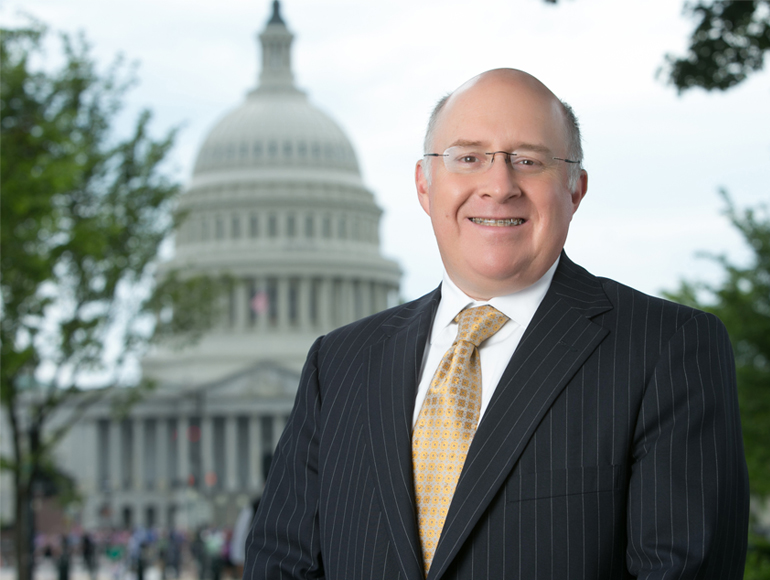
by Mark Smiley | Nov 21, 2016 | Main Articles
by Glen Richardson
As first shockingly disclosed by the Washington, D.C., based news publication The Hill, the highly prominent and powerful Denver based law firm of Brownstein Hyatt Farber Schreck, LLP has filed under the federal Foreign Agents Registration Act to represent the Ministry of Foreign Affairs of the Kingdom of Saudi Arabia. A copy of the Fee Agreement between the Brownstein firm and the Kingdom was leaked to 710 KNUS radio host Peter Boyles (who writes a column for the Glendale Cherry Creek Chronicle and found on page 2 each month).
Under the Fee Agreement the Kingdom is paying Brownstein $100,000 per month for a minimum of four months “to act as policy counsel . . . in connection with legislative issues of importance to the U.S. – Saudi Arabia bilateral relationship.”
The representation according to The Hill is to reverse the rights of the victims of 9/11 just granted under the Justice of Against Sponsors of Terrorism Act (JASTA) to sue the Kingdom of Saudi Arabia for its alleged complicity in the 9/11 attack. Fifteen of the 19 hijackers on 9/11 were from Saudi Arabia.
The Brownstein firm is not just any law firm in Denver. It was started in 1968 by 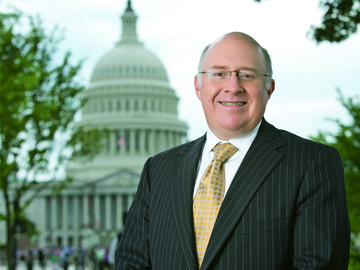 Norm Brownstein, Jack Hyatt and Steve Farber fresh out of the University of Colorado Law School. Both Brownstein and Farber grew up from highly humble beginnings on the west side of Denver. The firm has grown into the second largest firm in Colorado and the second largest lobbying firm in Washington, D.C. The firm has over 250 attorneys and has offices in 11 cities across the United States.
Norm Brownstein, Jack Hyatt and Steve Farber fresh out of the University of Colorado Law School. Both Brownstein and Farber grew up from highly humble beginnings on the west side of Denver. The firm has grown into the second largest firm in Colorado and the second largest lobbying firm in Washington, D.C. The firm has over 250 attorneys and has offices in 11 cities across the United States.
Nationally the firm is known for its political connections and locally for its philanthropic activities. It represents The Denver Post, Mayor Michael Hancock, and Governor John Hickenlooper. Both Brownstein and Farber are highly active in the Jewish community in Denver, and in the Cherry Creek Valley.
But Brownstein himself has not escaped scandal in recent years. His son Drew “Bo” Brownstein was forced to pay a $4.7 million fine in June 2012 by the Securities and Exchange Commission for insider stock trading for securities purchased in h is and his father’s names. He was later sentenced to one year and a day in federal prison by U.S. District Judge Robert Patterson, but Norm himself managed to escape any punishment.
is and his father’s names. He was later sentenced to one year and a day in federal prison by U.S. District Judge Robert Patterson, but Norm himself managed to escape any punishment.
What is so alarming to many is the fact that the Brownstein firm came to prominence as a lobbying powerhouse in Washington, D.C., due to its strong connections with the American Israeli Public Affairs Committee (AIPAC). It is a highly powerful group that lobbies for pro-Israel policies to Congress and the Executive branch.
JASTA was passed over the veto of President Barrack Obama on September 28 by a 97 to 1 vote with the only dissenting vote being Senate Minority Leader Harry Reid, and passed the House by a 348 to 77 vote. It is expected to be the only veto overridden during Obama’s eight years in the Presidency.
Notwithstanding the overwhelming votes in the Senate and the House it has been speculated that after the November 8 election and during the lame duck session, a way would be found to amend and render the legislation moot. The Kingdom of Saudi Arabia hired at least 13 other lobbying firms to get the legislation reversed including such other heavyweights as the Podesta Group and Patton Boggs.
Under the Fee Agreement the lobbying would be headed up by Alfred Mottur, Marc Lampkin and two non-lawyers. Mottur and Lampkin are among the 2016 top Washington, D.C., “hired gun” lobbyists as ranked by The Hill. Mottur works the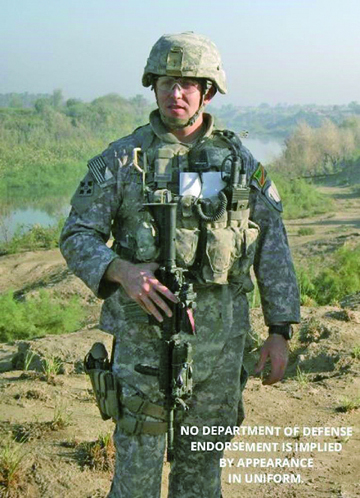 Democratic side of Capitol Hill having been a senior staffer for Senator Ernest F. Hollings (D-SC). Conversely, Lampkin is called a part of “Team Boehner” named after the recently retired Republican Speaker of the House John Boehner, as well as having been Deputy Campaign Manager for the George W. Bush for President Campaign.
Democratic side of Capitol Hill having been a senior staffer for Senator Ernest F. Hollings (D-SC). Conversely, Lampkin is called a part of “Team Boehner” named after the recently retired Republican Speaker of the House John Boehner, as well as having been Deputy Campaign Manager for the George W. Bush for President Campaign.
Mottur called into the Peter Boyles Show on 710 KNUS and somewhat quixotically attempted to assert that the Kingdom of Saudi Arabia had hired him to protect U.S. servicemen abroad from possible lawsuits. Retired Army veteran George Athanasopoulous who served four tours in Iraq as an infantryman was in studio when Mottur called. He later called Mottur’s dissembling on air who and what he was hired to lobby for “comical if it wasn’t so tragic.”
He went on to note, “He was destroyed on air by Peter [Boyles]. I don’t know how anyone would want the Brownstein firm to legally represent them knowing that they were registered foreign agents for the Kingdom of Saudi Arabia working to screw over the 9/11 families. Mr. Brownstein and Mr. Farber should be ashamed of themselves.”
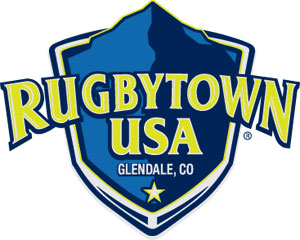
by Mark Smiley | Nov 21, 2016 | Glendale City News
by Kurt Woock
Writer for and on behalf of the City of Glendale

GLENDALE, CO – SEPTEMBER 15: Fall After School Rugby at Infinity Park in Glendale, Colorado on September 15, 2016. (Photo by Seth McConnell)
Infinity Park is Colorado’s home for rugby. On the weekends, you can find the best players from around the country on the pitch. Throughout the week, you’ll find it’s just as busy with its burgeoning youth rugby program, the Glendale Raptors Rugby Academy.
The youth Raptors Academy at Infinity Park is unique among youth athletic programs. The Academy works in conjunction with the Glendale Raptors men’s and women’s teams, drawing from among their ranks the people who become coaches for the youth program. Children as young as 5 and as old as 18 have the rare opportunity to go to an international rugby tournament and, a few days later, be coached by the same players they were cheering for. Jenna Anderson, the program coordinator for Raptors Academy, said she takes pride in the level of investment that the program makes in the coaches, and that the player-coaches make to become better at coaching. Each coach in the youth rugby program is certified through national programs in order to be equipped to teach the sport effectively and safely. This fall, Anderson sent a few coaches to a higher-level, full-day course through USA Rugby that gave them the tools needed to teach advanced tackling techniques.
That long-term view toward coaching is a microcosm of the entire Academy. The individual camps and teams aren’t designed to be one-offs. As a young athlete grows up, his or her rugby experience is designed to build on and expand upon years of experience in the program — it’s not simply more of the same, year after year, only with taller kids each time. Anderson said this year she saw, for the first time, an age group graduate out of the program having started at its earliest level, age 5. Developing well-rounded athletes takes a concerted effort over time, and the Raptors Academy has a blueprint to do just that.
The program had a successful fall season and has plans to keep that momentum moving forward, through the winter and into the spring. A few highlights:
Fall After School
Fall After School Rugby had about 85 boys and girls from kindergarten through eighth grade participate. Children between 5 and 7 played flag footba

GLENDALE, CO – NOVEMBER 21: Youth Rugby Camp at Infinity Park in Glendale, Colorado on November 21, 2015. (Photo by Seth McConnell)
ll while older children were divided into two-year groups and learned to tackle.
Practices were held on Tuesdays and Thursdays and, for the first time, offered Saturday scrimmages for anyone in the program. Thanks to a new partnership with Rugby Colorado, youth participants from many programs were able to apply what they learned in practice in a fun, new environment.
Anderson said many outgoing eighth graders have plans to continue playing rugby in high school with the skills they’ve developed at Infinity Park over the years.
Winter Indoor
This will be the third year for winter indoor. The program, which meets on four weekends in November and December, is all non-tackle and held in the gymnasium at the onsite Glendale Sports Center. Anderson said the winter indoor program helps athletes develop specific skills and improve conditioning during a time when the weather usually doesn’t permit outdoor play. The program can be a boon to young athletes looking for the boost they need to meet goals, like moving from a B team to an A team, or moving into the starting lineup. “Kids are already thinking about playing at next level, in college, in high school, and this program will help them.
Anderson said the program is also a good opportunity for a player new to the sport to pick up a few rugby basics before joining a league in the spring. “We work on a lot of movement skills,” she said. “Many kids can’t run and catch at the same time. Kids love making plays. Being able to catch and run will make the game infinitely more fun.”
School Visits
In order to bring the sport to as many people as possible, Anderson tries to make at least two “field trips” every month to neighborhood schools. While there, she runs mini clinics that give students an opportunity to try out some of the skills and learn the basic rules of the sport. She said that since the Summer Olympics, where rugby sevens made its Olympic debut, more and more students are already somewhat familiar with the sport and are certainly intrigued. “Seeing how fun it is, how fast-paced, how fit everyone is: It’s really capturing the imagination of families and kids.”

 g the store’s reputation. There are so many nooks and crannies to explore, each of them unique, with a character and feel all their own. “You just fall in love with the place,” they declare.
g the store’s reputation. There are so many nooks and crannies to explore, each of them unique, with a character and feel all their own. “You just fall in love with the place,” they declare. son shoppers want to be greeted and feel a sense of community. At The Bookies families actually seem to enjoy spending hours perusing the aisles. Kids can wander and play and the staff is receptive to the kids, adults and pretty much anyone who walks in the door. In addition, the shelves of the store more often than not hold the perfect gift for those on the customer’s holiday gift list no matter their interests or hobbies.
son shoppers want to be greeted and feel a sense of community. At The Bookies families actually seem to enjoy spending hours perusing the aisles. Kids can wander and play and the staff is receptive to the kids, adults and pretty much anyone who walks in the door. In addition, the shelves of the store more often than not hold the perfect gift for those on the customer’s holiday gift list no matter their interests or hobbies. hat makes this place so fantastic,” explains one yelper. Plus there are floor to ceiling titles, educational toys and creative gifts for the kids, fun craft materials plus books and gifts for adults, too.
hat makes this place so fantastic,” explains one yelper. Plus there are floor to ceiling titles, educational toys and creative gifts for the kids, fun craft materials plus books and gifts for adults, too. he 3×3 center match the pattern. It sounds easy, but it is a real game of skill, speed and dexterity. Youngsters can challenge their friends and family to a race.
he 3×3 center match the pattern. It sounds easy, but it is a real game of skill, speed and dexterity. Youngsters can challenge their friends and family to a race. years to adult with two to 10 players, the game develops dexterity, quick thinking and interaction.
years to adult with two to 10 players, the game develops dexterity, quick thinking and interaction. gh-flying fun with this neon glow-in-the-dark twister car set with two vehicles. The flexible, detachable tracks allow kids to easily change the direction and shape of the raceway, their minds racing with all the possible combinations. They’ll flip for the 360-degree, anti-gravity stunt loop that takes the cars for a ride upside down. By turning out the lights players will see how the colorful tracks glow in the dark when illuminated by the vehicles.
gh-flying fun with this neon glow-in-the-dark twister car set with two vehicles. The flexible, detachable tracks allow kids to easily change the direction and shape of the raceway, their minds racing with all the possible combinations. They’ll flip for the 360-degree, anti-gravity stunt loop that takes the cars for a ride upside down. By turning out the lights players will see how the colorful tracks glow in the dark when illuminated by the vehicles. Salmon Tacos. For the first time, she has also included a chapter devoted to bread and cheese, with recipes and tips for creating the perfect cheese course.
Salmon Tacos. For the first time, she has also included a chapter devoted to bread and cheese, with recipes and tips for creating the perfect cheese course.









